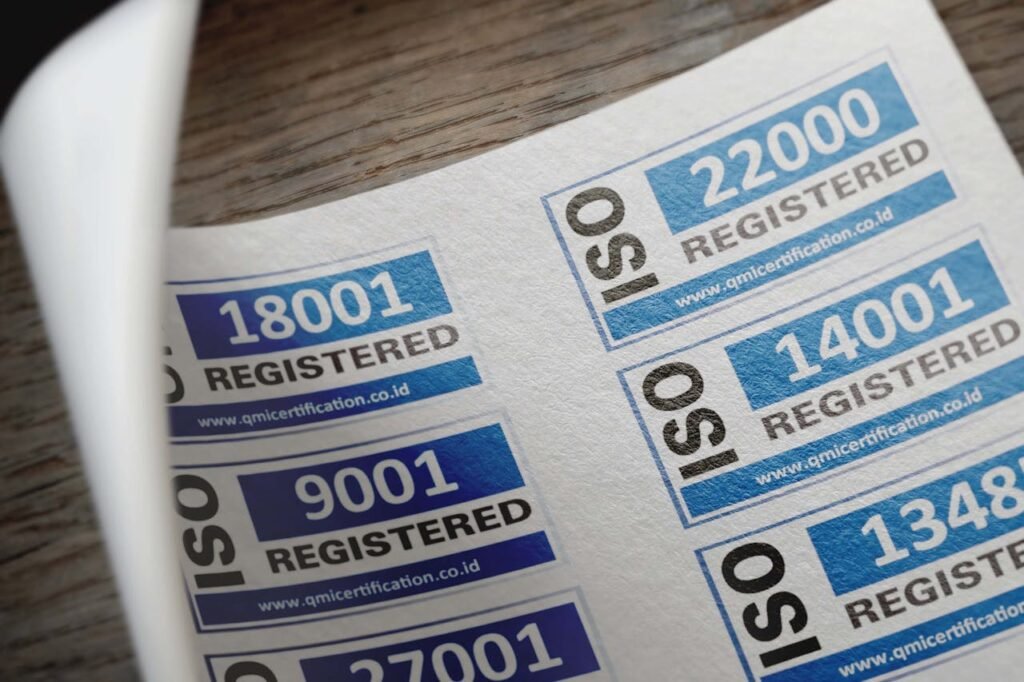
ISO Certification in India
Get your preferred ISO certification in India from FIRMDESK. We are the right company for obtaining your appropriate ISO certification in Chennai. ISO Certification is a global standard that validates an organization’s adherence to internationally recognized best practices for quality management, safety, environmental management, information security, and other areas. Obtaining ISO certification helps businesses demonstrate commitment to quality, improve operational efficiency, enhance customer satisfaction, and ensure compliance with industry regulations.
What is ISO Certification?
The International Organization for Standardization (ISO) is an international body that develops and publishes standards for a wide variety of sectors and industries. ISO certification is awarded to businesses that meet the requirements of a particular standard (such as ISO 9001 for quality management, ISO 14001 for environmental management, etc.). ISO standards help organizations:
- Improve internal processes
- Meet customer and regulatory requirements
- Ensure consistent quality and safety
- Nam Improve stakeholder confidencetempore, cum soluta nobis est eligendi optio cumque

Common Types of ISO Certifications
Here are some of the most popular ISO certifications that organizations pursue, depending on their specific industry needs:
ISO 9001: Quality Management System (QMS)
- ISO 9001 is the most widely adopted standard, focused on ensuring consistent quality in processes, products, and services.
- It helps businesses improve customer satisfaction, streamline processes, and drive continuous improvement.
- Key Focus: Quality management, customer satisfaction, process improvements.
ISO 14001: Environmental Management System (EMS)
- ISO 14001 is aimed at helping organizations minimize their environmental footprint by reducing waste, improving resource usage, and complying with environmental regulations.
- Key Focus: Environmental sustainability, compliance with environmental laws, reducing ecological impact.
ISO 45001: Occupational Health and Safety Management System (OHSMS)
- ISO 45001 focuses on improving health and safety at workplaces, ensuring the well-being of employees and reducing workplace accidents.
- Key Focus: Employee health, safety protocols, risk management, reducing workplace injuries.
ISO 27001: Information Security Management System (ISMS)
- ISO 27001 focuses on securing sensitive information and data by establishing an information security management system (ISMS).
- It is crucial for organizations that handle sensitive data, such as customer information, financial data, or intellectual property.
- Key Focus: Data security, risk management, protecting sensitive information.
ISO 22000: Food Safety Management System
- ISO 22000 is aimed at food businesses across the supply chain to ensure the safety and quality of food products.
- Key Focus: Food safety, hazard control, regulatory compliance in food production and distribution.
ISO 50001: Energy Management System
- ISO 50001 helps organizations optimize their energy consumption, reduce costs, and improve energy efficiency.
- Key Focus: Energy efficiency, cost-saving, and regulatory compliance.
ISO 13485: Medical Devices (Quality Management)
- ISO 13485 focuses on quality management systems specific to the design, production, and servicing of medical devices.
- Key Focus: Product quality, regulatory compliance, safety in the medical device industry.
ISO 20000: IT Service Management
- ISO 20000 sets a framework for delivering IT services and ensuring their consistency and reliability.
- Key Focus: IT service quality, management, and continuous improvement
Benefits of ISO Certification
Improved Product and Service Quality
ISO standards focus on improving processes, ensuring that the final product or service is of high quality and meets customer requirements.
Enhanced Customer Satisfaction
ISO certification helps businesses meet customer needs and expectations consistently, which can lead to improved customer trust and loyalty.
Compliance with Regulations
ISO certifications often align with regulatory and legal requirements, helping businesses avoid penalties and comply with industry-specific regulations.
Cost Efficiency
By streamlining processes and eliminating inefficiencies, ISO-certified organizations often experience cost reductions, improved resource management, and higher profitability.
Competitive Advantage
ISO certification enhances your credibility and reputation, distinguishing your business from competitors and attracting more customers.
Better Risk Management
ISO standards like ISO 27001 and ISO 45001 provide frameworks for managing and mitigating risks related to data security, employee safety, and operational processes.
Access to Global Markets
ISO certification is recognized worldwide, opening doors for businesses to expand and operate in international markets. It is often a requirement in global trade and partnerships.
Employee Engagement and Satisfaction
Engaging employees in a well-organized and structured quality management system often leads to higher morale and a safer, healthier workplace

ISO Certification Process in India
The process of getting ISO certified typically involves several key steps:
Understand Your Needs
Identify which ISO standard best fits your business needs. For example, ISO 9001 for quality management or ISO 14001 for environmental management.
Choose an ISO Certification Body
Select an accredited certification body (third-party organization) to audit and certify your business. Some well-known bodies include TÜV SÜD, Bureau Veritas, DNV GL, Intertek, and SGS.
Conduct a Gap Analysis
Before starting the certification process, a gap analysis is performed to identify the differences between your current management system and the requirements of the ISO standard.
Prepare Documentation
Develop the necessary documentation for your management system. This includes policies, procedures, manuals, work instructions, and forms.
Implement the System
After documenting your processes, implement the required system across the organization. This may involve employee training, process changes, or introducing new procedures.
Internal Audits
Conduct internal audits to verify that the system is being followed and is operating effectively.
Management Review
Review the performance of the implemented system with top management to ensure alignment with business goals and continuous improvement.
Certification Audit
The certification body will conduct a Stage 1 audit (document review) and Stage 2 audit (on-site audit) to assess your compliance with the relevant ISO standard.
Obtain Certification
If your organization meets all the criteria, the ISO certification body will issue the ISO certificate, validating your compliance with the relevant ISO standard.
Surveillance Audits
After certification, the certification body will perform periodic surveillance audits (usually every 6-12 months) to ensure continued compliance and improvement.



Have any Questions? Call us Today!
(91) 8072 431 237
B2D Form for ISO
Fill out this form and send it to us for obtaining ISO certification for your company or business.

ISO Registration Cost
Our Highlights
- Wide Range of Services
- Expertised Help
- Hassle Free Handling
- Customized Service
